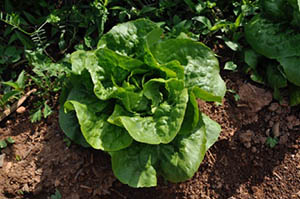And God said, “Behold, I have given you every plant yielding seed that is on the face of all the earth, and every tree with seed in its fruit. You shall have them for food.
Genesis 1:29
It’s a happy circumstance when working towards one healthy goal results in other positive repercussions. What we eat is just such a situation. As Michael Pollan, best selling author, journalist, activist and Berkeley professor advises, “Eat food, mostly plants, and not too much.”
By food, he means real, whole food, not “food-like substances.” If we were to follow this simple, common sense advice, the physical and metabolic profile of American citizenry would be profoundly changed as would the energy and focus of our health care system. And so would our carbon footprint. This would then work to address the climate change issues we all face.
Last September the Centers for Disease Control (CDC) published a paper, “Heart Age,”1 detailing the chronic issue our country faces with an unhealthy populace. According to this study, almost half of North Carolinians are thought to have a heart age at least 5 years greater than the actual age. The CDC goes on to detail the steps to be taken to address this alarming problem: achieve and maintain normal blood pressure, cholesterol and weight goals, do not smoke, avoid or treat diabetes, exercise, and eat a healthy diet low in sodium and trans fats and high in fresh fruits and vegetables.
If we were to eat that healthy diet as described we would not only feel good, look better, live longer and be able to more fully engage this God-given life, but would simultaneously be reducing our carbon footprint. Reducing our carbon footprint is an act of living in community with our brothers and sisters around the world as well as caring for God’s Creation.
Currently we Americans are second in the world for meat consumption per capita by country with Australia holding the top spot.2 The United Nation asserts that livestock production provides 14-15% of global greenhouse gas emissions.3 Other studies have analyzed the carbon “foodprints” of various eating choices and find that reducing meat intake reduces our carbon foodprint.4 Most of the meat available to the average consumer in our country is raised in a factory farm with high animal densities and all the associated issues with that model.5
So, “eat food, mostly plants and not too much” is a good maxim for us as global citizens of God’s world. We are all stewards by our daily living.
Here are two more resources on this topic (both available on Netflix):
Submitted by Helen Bushnell Beets for the Earth Stewards Team
2“Which Countries Eat the Most Meat Each Year” infographic
3Food and Agriculture Organization of the United Nations
4Shrink that Footprint: The carbon foodprint of 5 diets compared

